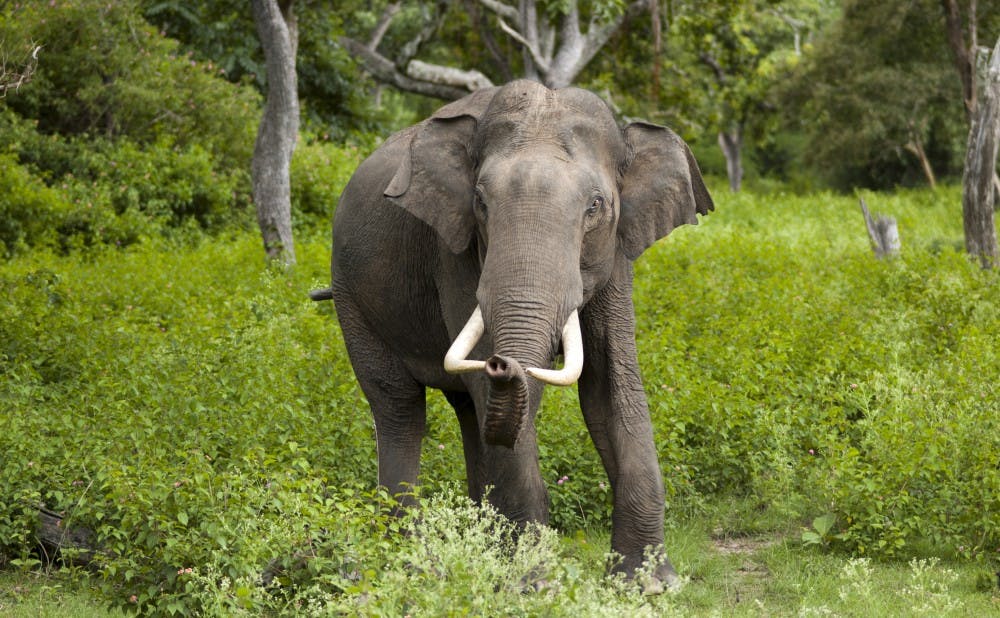Forest elephants are massive animals that can weigh anywhere from two-and-a-half to seven tons. They have big ears, big feet and big tusks that money-seeking poachers will kill for.
John Poulsen, assistant professor of tropical ecology, has been researching the effects of poaching and decline in forest elephant populations of West and Central Africa, as well as the impacts on the forest’s tree species and related ecosystems.
“Elephants are what are called ecological engineers,” Poulsen said. “They have a significant impact on their habitat, and structure and composition of the habitat.”
Poaching not only hurts the size and strength of a herd, but also destroys the ecosystem maintained by the elephants’ movement through the forest. With forest elephants being the largest mammals on land, their disappearing presence will have sizable effect on the forest around them.
Seed dispersal, browsing and nutrient distribution are all part of the elephants' interaction with the forest.
Poulsen explained that elephants are “gardeners of the forest” because they transport seeds and nutrients great distances. Doing so maintains tree species, as well as opening up the forest floor by eating and knocking down trees, branches and smaller plants.
All of these effects contribute to the continuation and diversity of forest life. However, the population of elephants in the African forests are decreasing at an alarming rate due to poachers.
“As long as you have a market for ivory and people can make profit off of ivory, it is going to continue,” Poulsen said.
Because of a few remaining legal markets and the black-market demand for ivory, poachers are killing elephants and suffering only a few weeks of penalty before they head back into the forest for another killing spree.
“We did a study in one national park in Gabon, and did a population survey to find that in 10 years it lost approximately 80 percent of its elephants—that’s a loss of 25,000 elephants,” Poulsen explained.
With the small number of forest elephants remaining, Poulsen said that his team now wants to quantify what will actually happen with this diminished population of these forest gardeners. Not only will they be tracking the seed dispersal timeline through an elephant, but also fence off areas in the forest to see what happens when the environment is unaffected by elephants.
“Our paper was predicting what would happen and raising the issue to people that forests could be being transformed," Poulsen said. "But now we need to actually go out and quantify it to see what the actual effects will be.”
Get The Chronicle straight to your inbox
Signup for our weekly newsletter. Cancel at any time.

